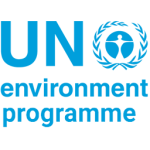
Timeline

Project Status & Information
Results

Background
This project aimed to articulate a response to the increasing demand for methodological and analytical support for the development of a long-term platform by illustrating strategies and the necessary policies that will ensure the enabling conditions for Guyana’s transition to a sustainably developed nation. The project supported multidisciplinary research, knowledge exchange and country engagement to help Guyana to transform their national economic structures to greener economy pathways, greening the economic sectors, generating new market opportunities and decent jobs, enhancing low-carbon efforts and climate resilience and sustainable consumption and production patterns.
The United Nations Environmental Programme, along with the Government of Guyana conducted stakeholder engagements from December 13th – 15th 2016 with the Private Sector, Civil Society, Youth Groups, Women’s Organisations, Bi-lateral and multi-lateral development partners, and Government Agencies.
The Framework of the Guyana Green State Development Strategy and Financing Mechanisms, considering many of the inputs from the initial stakeholder engagements, was developed and highlights Guyana’s vision for an inclusive, green, and prosperous State, the underlying principles and central themes of the Green State Development Strategy, financing and resource mobilization, and the institutional process for elaboration of the Green State Development Strategy.
RESULTS
The project resulted in the development of the “Framework of the Guyana Green
State Development Strategy and Financing Mechanisms” through comprehensive, nationwide stakeholder consultation process. The initial phase produced the Framework in 2017, which prioritized Guyana’s long-term development across seven themes. In the following year, seven multi-stakeholder thematic expert groups, comprising 116 professionals from Guyana’s public and private sectors and civil society groups, were formed to deliberate on these development themes. Their efforts established the policy direction for each theme. A third phase of consultations gathered input from Guyanese citizens through meetings at 33 cluster sites in coastal and hinterland areas, involving over 1,600 participants from surrounding communities and villages. Additionally, “Green Conversations” – public and media events held in the capital city and major regional towns – featured international and local speakers, along with interactive question-and-answer sessions on relevant ‘green’ topics.
Several technical workshops were held to build skills and share knowledge on development methods and approaches. Senior staff from government ministries and agencies, private sector bodies, and civil society groups were consulted and interviewed for their recommendations. These inputs, along with secondary research and analyses conducted by local and international researchers and experts, are detailed in the Annexes. Together, they served as the foundation for developing the policy recommendations.



